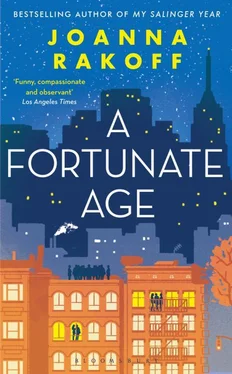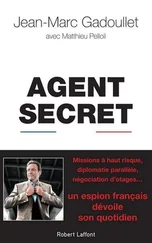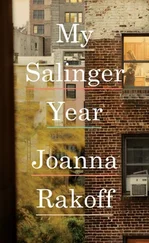In truth, he hated to think about that time—four years of his life spent in fucking Rochester —and tried to steel his mind against it. But, of course, the more he tried to turn himself to other subjects, the more he played over the injustices and embarrassments and disappointments of those years at grad school, which seemed, in a way, to have all blended into one long winter. He had arrived on campus—in a weird, unpopulated section of Rochester (which was itself a weird, unpopulated city, all too reminiscent of Cleveland)—full of swagger, certain that he was the department’s show pony. At Oberlin, he’d been a star, a coveted player—he and Tal equals then—respected by the composition students for his knowledge of new music, which was unusual in a pianist (or any sort of classical musician, for that matter). In fact, as an undergrad, he’d had his choice of schools—Juilliard, Peabody, and, yes, Eastman—but he’d chosen Oberlin for reasons both practical (they’d offered him a full ride) and sentimental (his father was ’67). As a freshman, he’d been given an orchestra seat, a rare honor for so young a pianist. And though he was perpetually behind on his practicing—endlessly playing catch-up, scrambling to learn pieces at the last minute, hours before a concert—it always worked out in the end.
He’d held his senior concert in Finney Chapel—just a few weeks after Liz Phair played there—and included some unusual stuff on the program, Xenakis, Satie, whatever. At least a hundred people came, a huge turnout for a recital: most were held in the Conservatory’s tiny auditoriums, attended only by professors, close friends, and bewildered, bored family. But Dave was not, as he often mused with satisfaction, a normal Con student. He pulled beer at the bar in the student union—the Disco, or the ’Sco, as the freshmen dorkily called it—along with Tal and Sadie, and had a large following among the grunge contingent, the flannel-clad guys who played in bands and the long-haired girls who worshipped them. He dated the girls (before Beth, of course, though there was a fling or two during ) and hung around with the guys—a bunch of whom lived in a shambling pile of wood called “Slack House” or “House of Slack”—drinking bad beer, watching kung fu movies, and engaging in ironic discussions of popular culture. And he played in some of their bands, including an outfit called Quizmaster Quest (after an obscure video game) that became legendary on campus, due less to their sound, which was largely cribbed from fIREHOSE and the Minutemen, and more to the emaciated good looks of the lead singer, a hollow-eyed Minnesotan named Jan Jensen.
By comparison, Rochester was cold and wretched, both meteorologically and socially. All the other piano students were Asian and silent, or blowsy and schoolmarmish and headed for teaching jobs at Lower Arkansas Community College, or old and male and balding and terminally flustered, or outrageous flaming queens, who smoked cigarette after cigarette in the little courtyard outside the practice rooms. And he the lone straight male, wandering angry and disheveled around the dull, deserted streets, wondering if he should ask out the pretty flautist in his theory class, the one who always wore prim round-necked sweaters, like a coed from the 1950s. But her thin, childlike body disturbed him. He lay in bed at night, envisioning her next to him, her tiny hands running up and down his chest like spiders, and felt like a lech. He started practicing at weird hours and sleeping at even weirder ones, having no friends and no responsibilities other than the few classes he needed to attend and teach, all of them easier than his hardest at Oberlin. By October, it was freezing. He wore thermals under his jeans and sat by a bracingly ugly man-made waterfall that had been mysteriously set into the town’s creepy industrial landscape, feeling sorry for himself and allowing the crashing water—pouring off great slabs of smooth, dun-colored cement—to clear some of the detritus in his head, or, at the very least, to allow him to stop hearing his students’ imprecise notes, and Beth’s whispery voice on his answering machine.
He’d spent the previous summer at home, in Brooklyn, cramming four years of stuff into his tiny childhood room, the back abutment of his parents’ floor-through. At night, he drank beer with his friends from St. Ann’s, all of them staying in New York and starting jobs at publishing companies or design houses or theater troupes. He planned on practicing—planned on practicing every day and reading In Search of Lost Time. Instead he sat on the stoop of his building, smoking and skimming the arts section of the Times . He slept until noon, or sometimes one or two, then padded into the apartment’s tiny kitchen, unchanged since the mid-1970s, and made himself a cup of coffee in the smallest of his mother’s three French presses (his mother was insane about coffee).
All that summer he attempted to avoid speaking to Beth, who was holed up at her parents’ house, thirty miles north, reading Victorian novels and swimming in her neighbor’s pool. Once a week or so, she’d train into the city on some errand and call him from Soho, where she was having her hair cut, or midtown, at a matinee with her grandmother. “Come over,” he always found himself saying. And she always agreed to, with studied nonchalance, and made her way, hesitantly, to Brooklyn. He’d throw on stained khakis, stained T-shirt, and flip-flops and meet her at the Bergen Street F stop, as she had a suburbanite’s sense of distance and always got turned around on the way to his parents’ apartment, thinking she’d gone too far when she wasn’t even halfway there. Through the station’s wrought-iron bars, Dave watched the smatterings of people getting off the trains—mostly studenty types, like himself, for who else would be at liberty to wander the city at three in the afternoon?—mesmerized by the flow of the metal cars, sleepy with heat, longing for a cigarette. Just when he was beginning to worry that she was lost, Beth would appear, hair lank around her soft, pliant cheeks. Her eyes were the exact same shade as her hair—the color of weak tea—which lent her the look of a forest creature, perhaps a fawn. She was such a Beth , he thought. What if her mother had named her Jo?
As they sat drinking iced coffee at the new bistro on Smith Street (three months earlier it had been a crack bodega that his mother crossed the street to avoid), the sweat slowly drying under their arms and along the sides of their spines, Beth detailing the horror of a Scarsdale summer (“I think every guy I went to high school with is going to medical school in the fall”) and the advances made upon her person by the manager of the local Banana Republic, where she’d recently bought a maroon dress that her mother hated , Dave would be thinking of the moment when they would walk the three blocks back to his childhood room and he would give her a glass of his dad’s white wine, and Beth would stop her nervous chatter. He would put his arms around her—her body soft and white, smooth and unmuscled, like fabric—and lead her to his small bed, the fan blowing on them as they sweated and sweated the already damp sheets. Afterward, Beth would sleep, thick from wine, and he’d wake her for dinner with his parents, an event she loved and hated. She knew—she certainly knew—that it was over, that he didn’t love her enough, or that he did, but she wasn’t quite the person he wanted to love, and that he invited her to Brooklyn because she loved him—for her, he was the one, the end, the thing in itself—and he knew, he knew , he should love her with equal devotion, should embrace some semblance of their future, their contributions to the Oberlin scholarship fund, but he couldn’t, he just couldn’t. And neither could he say “No, don’t come” when she called and said “I’m here.” At dinner, she told funny stories, complimented his mother’s chicken paillard, and laughed at his father’s stupid jokes. Dave sat silently, in a semisulk, avoiding his mother’s serious blue gaze. She knew, too, of course, that Dave had closed himself off to Beth, who was pretty rather than beautiful, sweet rather than dangerous, devoted rather than confused, and she tried to avoid saying “You’re making a mistake,” though she didn’t need to, really, which annoyed him, as everything seemed to annoy him that summer.
Читать дальше












